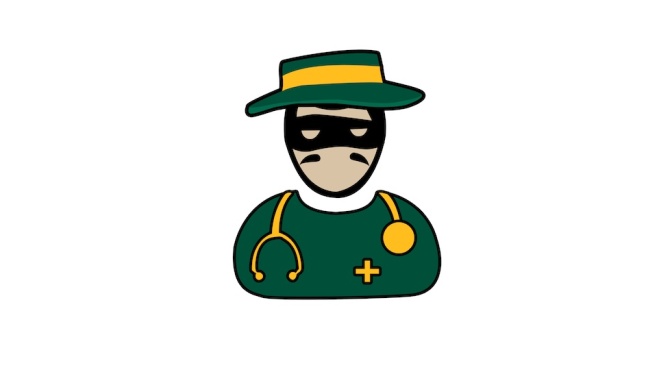Bernadette De Mesa
Contributing Writer
While the Ebola Virus Disease has primarily in- fected people in West Africa, the first U.S. case ap- peared in Dallas, Texas on Sept. 30. With the abrupt spread of the virus consuming the nation’s attention and causing an uproar, USF has been taking preven- tative measures by following the Centers for Disease Control and Prevention (CDC)’s guidelines.
USF has a standing committee that deals with emer- gency preparedness. According to Kamal Harb, director of USF’s Health Promotion Services (HPS), the com- mittee has been meeting on a regular basis to plan and monitor the ongoing Ebola situation. The committee has also been in contact with the Dignity Health Medical group to share health information and guidance about Ebola to protect the USF and Bay Area community.
According to the CDC, the Ebola Virus Disease is a rare and deadly disease caused by infection from one of the Ebola virus strains. Symptoms include fever, severe headache, muscle pain, weakness, diarrhea, vomiting, abdominal pain, and unexplained bleeding or bruising. These symptoms appear anywhere from two to 21 days after exposure to Ebola. Recovery depends on good clin- ical care and the overall health of the patient. Recovered patients develop antibodies that last for at least 10 years.
“An outbreak of an Ebola epidemic in the United States is remote, close to none,” Harb said. “The CDC have taken concrete steps in monitoring individuals coming from the affected areas.”
There are also no USF programs or internships in the affected areas listed by the CDC, and no university pro- grams will be approved for the 2014-2015 academic year.
Senior Rachel Kaya said, “I think it’s good that USF can- celled all programs, but I think they can do more on campus such as an informational flyer all around campus that in- cludes a brief overview of what Ebola is, how it is transmitted, how to best prevent and protect yourself, and provide reliable links for more information and updates in order to help stu- dents better understand the Ebola situation.”
The School of Nursing at USF sent an email to all nursing students on Oct. 20 with information to keep them informed and updated on the outbreak and how to best provide safe patient care, according to senior nursing student Jeanette Lising.
“I am pretty nervous about this Ebola epidemic,” Lising said. “It’s a serious issue and it is both sad and frustrating that the people who are supposed to be quarantined are not taking it seriously.”
Another senior nursing student Morgan Messick said that she has been more cautious in the healthcare setting since the outbreak. “This means diligent hand hygiene and using gloves when it comes to patient contact,” she added.
Dignity Health Medical Group-Saint Francis/St. Mary’s provides USF students with primary care ser- vices. All USF students have access to the Medical Foundation Care Center services during business hours despite their health insurance coverage.
Dr. Lee Ozaeta at St.Mary’s confirmed, “As part of our preparation to deal with Ebola, we have had workshops to review the algorithm for assessment and management of persons with suspected Ebola Virus Disease (EVD). All of our staff have been educated about the routine procedures one would take in a suspected case of EVD.”
He also added, “Because we are an outpatient clinic, we normally would not be the one to diagnose a case of Ebola first. We could be the first contact point of a person with possible exposure. If that is the case, appro- priate isolation procedures and contacting the Depart- ment of Public Health would be the next step.”
In order to protect yourself, friends, and commu- nity, simple health tips can be done: wash your hands with soap and water, cough and sneeze in the crook of your sleeve, and see a healthcare provider if you are ex- periencing any symptoms. It is also important to recog- nize that Ebola is not airborne but it is spread through direct contact with bodily fluids.

